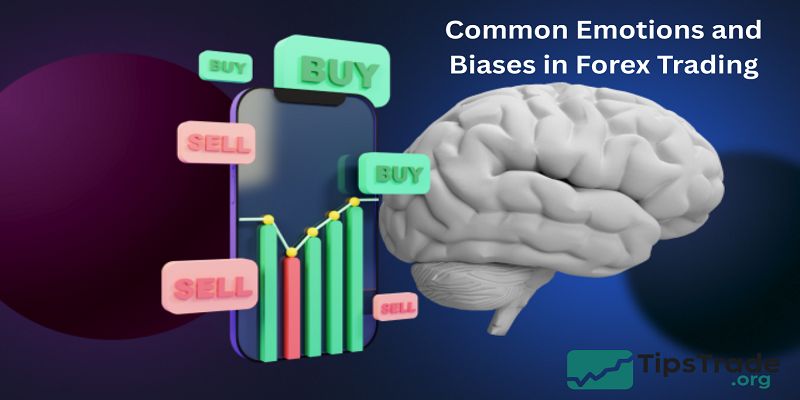Forex trading psychology plays a crucial role in shaping trading performance, building emotional discipline, and managing risk in volatile markets. Many traders focus on technical indicators or trading strategies, but success often depends on mindset, trading habits, and self-control. Mastering trading psychology helps you avoid emotional trading, reduce common mistakes like overtrading or revenge trading, and develop a consistent trading routine
What is Forex Trading Psychology?

Definition and Key Components
Trading psychology refers to the emotions, behaviors, and mental frameworks that influence decision-making in financial markets. It includes how traders handle stress, react to losses, and control impulses. The key components are:
- Emotional regulation: Managing fear and greed.
- Discipline: Following a trading plan without deviation.
- Patience: Waiting for valid setups.
- Risk tolerance: Accepting losses as part of the process.
Psychology is not just about being positive; it’s about being consistent.
Even top hedge fund managers like Ray Dalio emphasize that discipline and self-awareness matter more than predicting the market.
For beginners, understanding psychology is often harder than learning technical analysis, but it is the foundation of sustainable trading.
>>See more:
- What is Forex? The Complete Guide for Beginners
- Forex strategy: Top 10 most effective strategies for beginners
- Important Economic Indexes Every Trader Needs To Know
- Top 10 best forex currency pairs to trade in 2025
Why Psychology is More Important Than Strategy
- Many traders obsess over finding the “perfect system,” but research shows that psychology contributes more to long-term profitability.
- A system with a 50% win rate can still be profitable if paired with strict risk management and discipline.
- On the other hand, even a system with 70% accuracy may fail if a trader lets fear cut profits short or ignores stop-losses.
- In practical terms, trading is 20% strategy and 80% mindset.
- This doesn’t mean strategies are irrelevant, but without psychological stability, no system can deliver consistent results.
- Consider professional prop traders: they often use simple setups but outperform retail traders because of their ability to stay calm under pressure.
- Building mental resilience turns average strategies into powerful tools.
Common Emotions and Biases in Forex Trading

Fear and Greed
- Fear and greed are the two strongest emotions in markets. Fear shows up as hesitation, closing trades too early, or avoiding setups after a loss.
- Greed pushes traders to over-leverage, hold trades too long, or jump into setups without confirmation.
- Both emotions lead to inconsistent results. For example, a trader who fears missing out (FOMO) may enter at the worst possible time, just before a reversal.
- Practical tip: set predefined entry/exit rules and use stop-loss orders. This helps neutralize emotions, letting logic drive decisions instead of panic or euphoria.
Loss Aversion and Overconfidence
- Behavioral finance research (Kahneman & Tversky, Prospect Theory) proves that humans hate losses more than they enjoy equivalent gains.
- Traders may hold on to losing positions, hoping the market turns around, instead of cutting losses. This is called loss aversion.
- On the other side, overconfidence bias can be just as dangerous. After a few wins, traders may increase position size without logic, exposing themselves to bigger risks.
- Balancing humility and confidence is essential—confidence must come from data and backtesting, not from short-term results.
Other Psychological Biases
Besides fear, greed, and loss aversion, traders face other biases:
- Confirmation bias: Only seeking information that supports your opinion.
- Anchoring bias: Fixating on one price level and ignoring new data.
- Recency bias: Overweighting the most recent trade outcome.
- Illusion of control: Believing you can “control” or predict the market.
Being aware of these biases helps traders step back and analyze decisions objectively.
A simple practice is asking: “If I wasn’t in this trade, would I enter now?”—this resets perspective and reduces emotional bias.
Common Psychological Mistakes in Forex

Overtrading
- Overtrading happens when traders take too many trades, often outside their strategy. Causes include boredom, FOMO, or revenge trading.
- For example, after three small losses, a trader may double position size to “win it back.” This usually leads to bigger losses.
Solution: set a maximum number of trades per day or week. Quality always beats quantity.
Ignoring Stop-Losses
- One of the biggest psychological traps is moving or removing stop-losses. Many traders convince themselves, “The market will come back.” Sometimes it does, reinforcing bad habits.
- But when it doesn’t, a small loss turns into a catastrophic one.
- Professional traders treat stop-losses as insurance.
- They don’t argue with the market; they accept it. Remember, preservation of capital is the number one rule.
Taking Profits Too Early
- Closing trades prematurely is another mistake. Traders often grab a small profit because they fear the market will reverse.
- While this feels safe, it destroys long-term profitability.
- A better approach is to trust your strategy’s risk-to-reward ratio. If your plan is 1:2 R:R, then cutting trades at 1:0.5 guarantees failure.
- Backtesting builds trust in your system, making it easier to hold trades longer.
Revenge Trading and Chasing Trades
- After a loss, emotions run high. Some traders enter new trades immediately to “get back” what they lost.
- This is called revenge trading and usually ends in disaster. Similarly, chasing a trade after missing the entry leads to bad entries with poor risk-reward.
- The solution is discipline: step away after a big loss, reset emotionally, and return only when calm. Professional traders know when not to trade.
Techniques to Improve Trading Psychology

Journaling and Self-Reflection
- Keeping a trading journal is one of the most powerful psychology tools. Record not only entries and exits but also emotions: Were you anxious? Did you break rules? Over time, patterns emerge. For example, you may discover you overtrade on Fridays or become impatient after two losses. Journaling turns psychology into data, making it easier to fix.
Building Discipline and a System
Discipline comes from structure. Traders should:
- Create a written trading plan.
- Define entry/exit rules.
- Set risk management guidelines.
- Review trades weekly.
When rules are clear, decisions are less emotional. This is why professional trading firms demand rule-based approaches.
Risk Management and Stress Control
- Risk management is psychology in action. By risking only 1–2% per trade, traders reduce emotional pressure.
- Losses feel manageable, preventing panic. Stress reduction also helps—techniques like meditation, exercise, or even a 10-minute walk after a trade calm the nervous system.
Demo Trading and Breaks
- For beginners, demo accounts provide a safe way to practice without emotional stakes.
- Experienced traders also benefit from breaks—stepping away when emotions are overwhelming. Walking away is not weakness; it’s a strength.
>>See more:
- Copy Trade Forex: Key Tips to Maximize Your Profits
- News Trading Forex Strategies for Beginners
- Forex Capital Management Tips: The Key To Success For Professional Traders
Traits of Successful Traders

Patience and Discipline
- Successful traders wait for setups that align with their system, no matter how long it takes.
- They don’t chase every move. Patience turns trading from gambling into probability management.
Flexibility and Adaptability
- Markets change constantly. Rigid traders fail, while adaptable traders survive. For example, during high-volatility events like NFP (Non-Farm Payrolls), flexible traders adjust position size or stay out. Adaptability is psychological resilience.
Long-Term Mindset
- Top traders think like marathon runners, not sprinters. They accept losses as tuition and focus on growth over years, not days.
- This mindset keeps them from emotional swings after each trade.
Objectivity and Self-Control
- The best traders stay detached from outcomes. A win doesn’t make them euphoric, and a loss doesn’t break them.
- They see trading as statistics: follow the edge, let probabilities play out.
Building a Personal Trading Psychology Framework

Checklist Before Trading
Before every trade, ask:
- Am I calm and focused?
- Does this setup fit my plan?
- What is my risk-reward ratio?
- Am I okay with losing this trade?
If the answer is “no” to any question, skip the trade.
Risk and Loss Limits
Set clear boundaries:
- Max daily loss = 2–3% of account.
- Max weekly loss = 5–6%.
- Stop trading after hitting limits.
This prevents emotional spirals and account blowouts.
Conclusion
Forex trading psychology is not about eliminating emotions but learning how to manage them effectively. Fear, greed, impatience, and overconfidence will always exist in financial markets, yet successful traders know how to recognize these emotions and act with discipline instead of impulse. By focusing on mindset, emotional discipline, and risk management, you create a foundation for consistency that no single strategy alone can provide.

